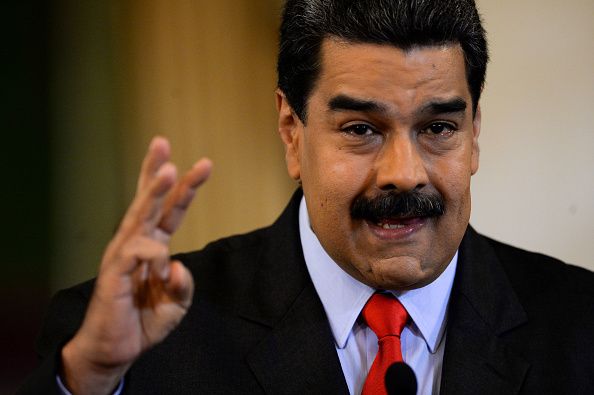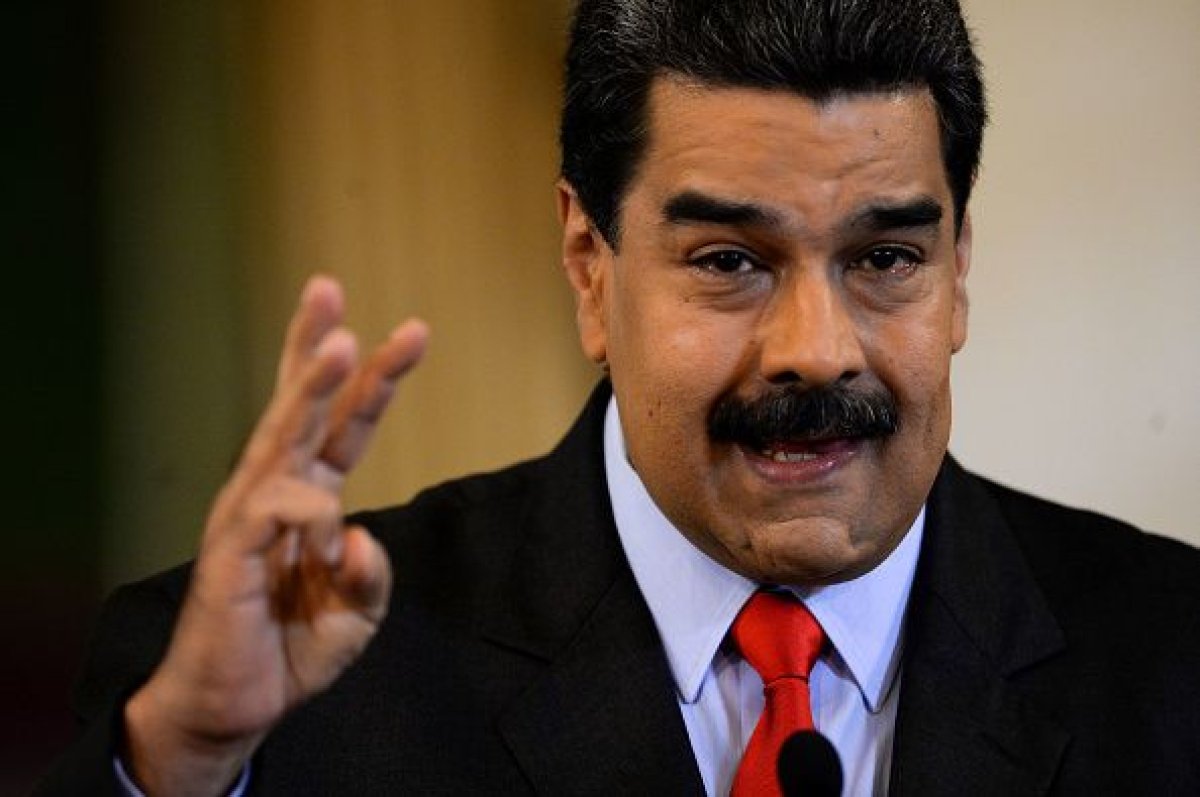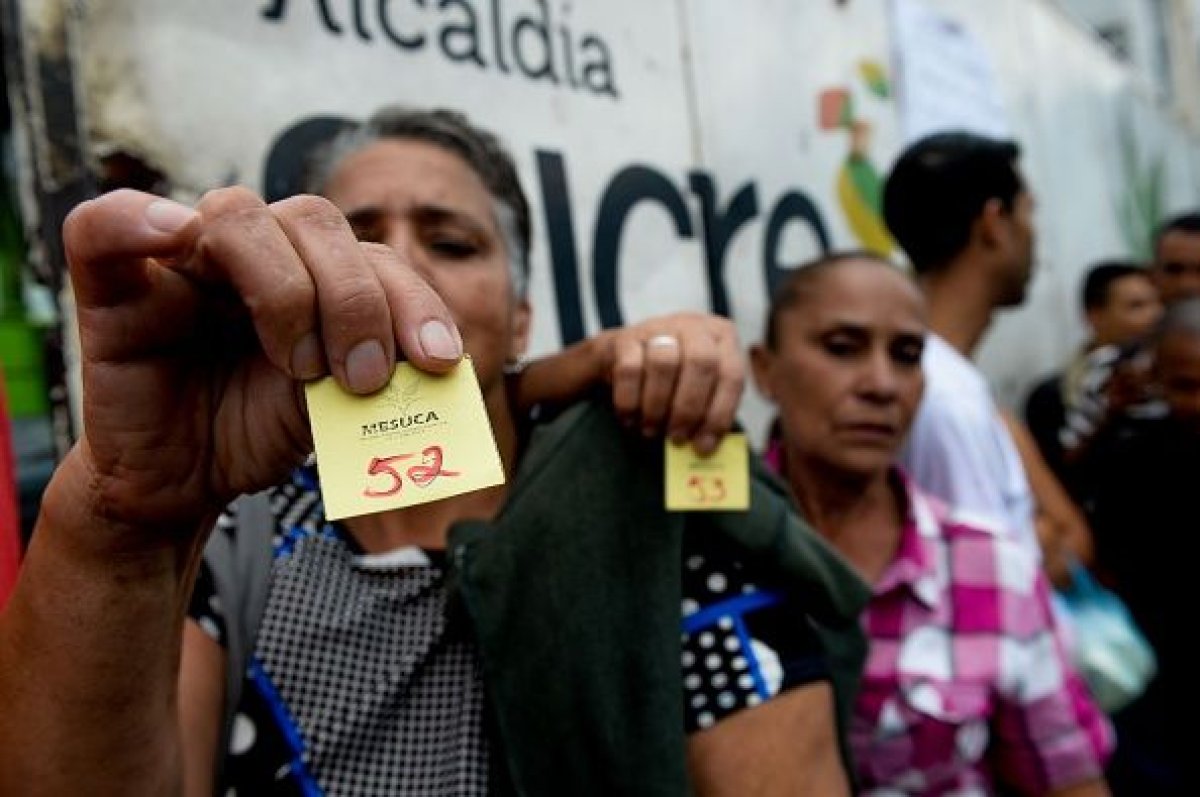
Venezuela announced Tuesday it is launching a new cryptocurrency, called the petro, which it says will help save the country's failing economy.
The new currency was launched Tuesday, and the government of the oil-rich nation pledged that each petro coin would be backed by the value of one barrel of oil. The government plans to circulate around 100 million petro coins, which it hopes will raise around $6 billion, according to a government-issued white paper.
"Petro is born and we are going to have a total success for the welfare of Venezuela," Venezuelan President Nicolas Maduro declared Tuesday. Maduro said the currency has attracted interest from wealthy investors from countries like Qatar, Turkey, and the U.S.
But economic experts say the petro is a risky investment, and members of Venezuela's beleaguered political opposition argue that it is illegal. What's more, investing in the currency would be considered a violation of U.S. sanctions, making it nearly impossible for U.S. companies to get involved.
"What they are saying allegedly is that [the currency] would be guaranteed with Venezuelan oil. But when you read the white paper the government put out, it's not true that there is a guarantee that you can go to the government and get oil with the currency. What you can get are bolivars for the cryptocurrency, and bolivars are worth almost nothing," Mariano de Alba, an expert on Venezuela at the Washington-based think tank the Atlantic Council, told Newsweek.
"In the end, I don't see how rich people who do their homework would see this as an intelligent investment…. This seems like a desperate measure to scam people and see if some people will actually give money to the government," de Alba continued.

Members of the political opposition argue that the petro is illegal because Venezuela's constitution stipulates that the country's oil reserves cannot be used as a guarantee for financial operations, analysts note.
Cryptocurrencies like bitcoin and the new Venezuelan currency can be converted into regular currencies anonymously. They are recorded through a technology called blockchain that allows digital information to be shared without being copied.
The technology adds a high-tech veneer to Venezuela's newest currency, but many analysts say Venezuela's petro is actually similar to a government bond. And the U.S. Treasury also views the transactions as a public debt operation, making them illegal under U.S. sanctions.
The U.S. imposed economic sanctions against Venezuela in August, prohibiting the country from borrowing money from U.S. creditors. The Treasury Department also banned debt trades for bonds issued by the Venezuelan government and its state-owned oil company PDVSA.
"Maduro may no longer take advantage of the American financial system to facilitate the wholesale looting of the Venezuelan economy at the expense of the Venezuelan people," Treasury Secretary Steven Mnuchin said at the time.

The sanctions have made it nearly impossible for Venezuela to restructure its ballooning debt.
The oil-producing country is experiencing a historic economic collapse caused by record-low oil prices and economic mismanagement that led to hyperinflation. The population is experiencing chronic shortages of food and medicine, violence and crime are widespread and middle-class families are often seen lining up for hours to acquire basic foodstuffs.
Inflation is at an all-time high, and the maximum amount Venezuelans can withdraw from cash machines is equal to around 4 cents at the exchange rate typically found in the black markets. Many citizens have started using online payments instead of carrying around the duffel bags of bills they would need to pay for basic goods.
"The state of the oil industry in Venezuela is collapsing. The economic situation is so bad that it's created the worst humanitarian crisis the hemisphere has seen. And it's the most distorted market. Everything is collapsing. The markets aren't going to be fooled by a cryptocurrency—Venezuela owes so much money," Dany Bahar, a global economy and development fellow at the Brookings Institution, told Newsweek.
Venezuelans will not be able to use their own currency, the bolivar, to pay for the new cryptocurrency. But the online currency can allegedly be exchanged for goods and services, and to pay for taxes in Venezuela.
"The Bolivarian Republic of Venezuela guarantees that it will receive petro as a form of payment for national taxes, fees, contributions and public services, taking as a reference the previous day's Venezuelan oil basket price with a discount," the currency's English-language website reads.
Venezuela isn't the first country to use cryptocurrencies to avoid U.S. sanctions. In January, Russia's government also recently ordered the creation of its own cryptocurrency, called the cryptoruble.
Uncommon Knowledge
Newsweek is committed to challenging conventional wisdom and finding connections in the search for common ground.
Newsweek is committed to challenging conventional wisdom and finding connections in the search for common ground.
About the writer
Cristina Maza is an award-winning journalist who has reported from countries such as Cambodia, Kyrgyzstan, India, Lithuania, Serbia, and Turkey. ... Read more
To read how Newsweek uses AI as a newsroom tool, Click here.








